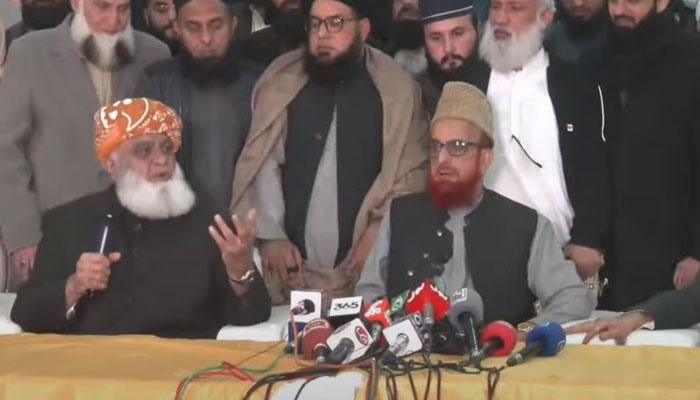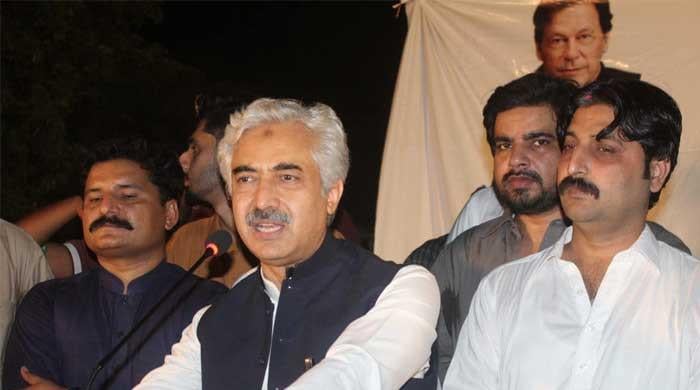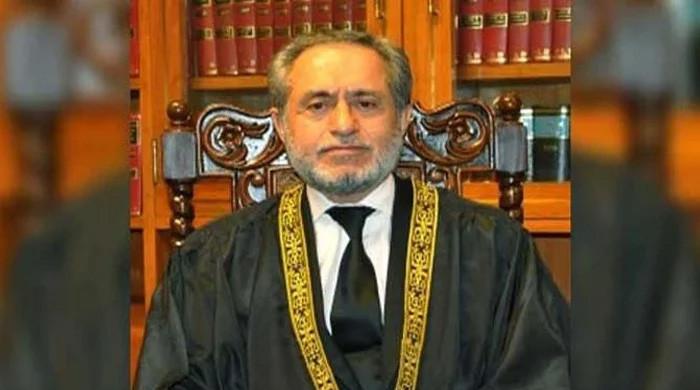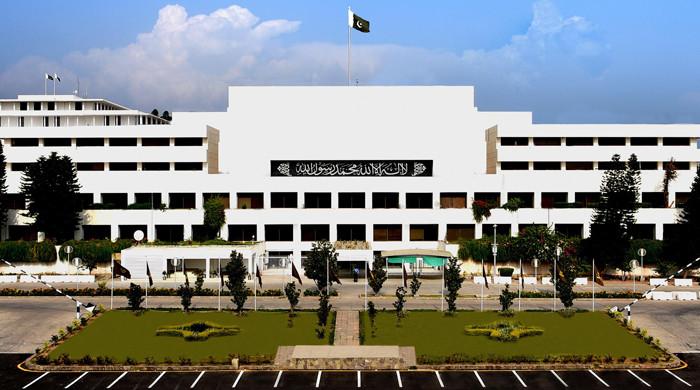ITMD urges govt to immediately notify madrassa bill
Societies registration bill has become law and gazette notification should be issued, says Mufti Muneeb
December 17, 2024

- JUI-F chief Maulana Fazlur Rehman says bill was not controversial.
- Bill was only sent to president after receiving final approval: ITMD
- Objections were ineffective due to expiry of designated time, it says.
In a major development, the Ittehad Tanzimat Madaris Deenia (ITMD) — a federation of the main madrassa oversight bodies — demanded the government to issue a gazette notification for the Societies Registration (Amendment) Act 2024.
Addressing the press conference following a meeting of the ITMD supreme council on Monday, the ITMD's top leadership stressed that the bill was dispatched to the President's House after it received final approval and the objections raised by the presidency became ineffective once the designated time expired.
The controversy arose two days ago when President Asif Ali Zardari expressed concerns that if the madrassa bill turns into a law, seminaries will be registered under the Societies Act, which may lead to the imposition of Financial Action Task Force (FATF), Generalised Scheme of Preferences Plus (GSP+), and other sanctions on the country.
The disputed madrassa bill, which has already been passed by both houses of parliament, has become a bone of contention between the JUI-F and the government. Its enactment was part of an agreement between the government and the religio-political party for supporting the 26th Amendment.
Following its approval from parliament, the bill now requires the president’s assent to become law but President Asif Ali Zardari had returned the bill earlier this month, citing legal objections. According to the Constitution, the bill must be tabled before a joint sitting after the president refuses to sign.
To meet this condition, Prime Minister Shehbaz Sharif has sent a advice to President Asif Ali Zardari for holding a joint session of parliament on December 17, parliamentary sources told Geo News.
In a crowded presser earlier today, Mufti Muneeb-ur-Rehman noted that the bill was sent to the President's House on the same day it was approved. He mentioned that the president identified a mistake in it on October 28, 2024, which the National Assembly speaker referred to as a "typo." After making the correction, the speaker resubmitted the bill to the president, who raised additional objections, he added.
Muneeb said that the madaris bill has become a law. He explained, "The bill has acquired legal status because the president did not raise any objections to it within ten days. The objections the president did raise were ineffective."
He demanded the government immediately issue a gazette notification in accordance with the law.
Mufti Muneeb asserted the first objection was addressed by National Assembly Speaker Sardar Ayaz Sadiq, who confirmed the madaris bill has now become an act.
Jamiat Ulema-e-Islam (JUI-F) chief Maulana Fazlur Rehman remarked that the bill was not controversial since it has been approved by parliament. He reiterated that the supreme council believes the government should endorse its resolution.
If a decision is made to the contrary, the ITMD will reconvene, Mufti Muneeb stated, issuing a subtle warning: "It benefits no one to escalate the situation. We aim to deliver a positive and constructive message."
The government initially proposed the draft of the bill and the JUI-F revisited it during discussions for the 26th Amendment, noted Fazl.
"The draft of the bill first came from the government. We accepted it. We brought it again to the table of discussion on the occasion of the 26th Amendment," Fazl noted.
He asserted, "It was the government that made changes to the draft of the bill. For us, there is no controversy regarding this bill now."
After the bill was approved, government ministers congratulated us, Fazl said, adding that now they have many objections after one and a half months.
Among eight objections, President Zardari highlighted a potential conflict of interest arising from the registration process and expressed concerns about potential negative consequences for Pakistan’s international standing and internal stability.
According to the objections, the registration of religious seminaries under the law would lead to the spread of sectarianism and the establishment of many seminaries in the same society would lead to the deterioration of the law and order situation.
The bill
The much-discussed legislation is an amended version of the Societies Registration Act, 1860, which emphasised the registration of madrassas (Islamic seminaries) in existence "within six months" from its enactment.
It also stated that a Deeni Madrassa established after the commencement of the Societies Registration (Amendment) Act, 2024, shall get itself registered "within one year of its establishment".
A seminary having more than one campus shall need only one registration, it read.
Subsequently, each madrassa would be bound to submit its annual report of its educational activities and audit report to a registrar.
Under the law, a Deeni Madrassa was defined as a religious institution established or operated primarily to impart religious education, which provides boarding and lodging facilities.











